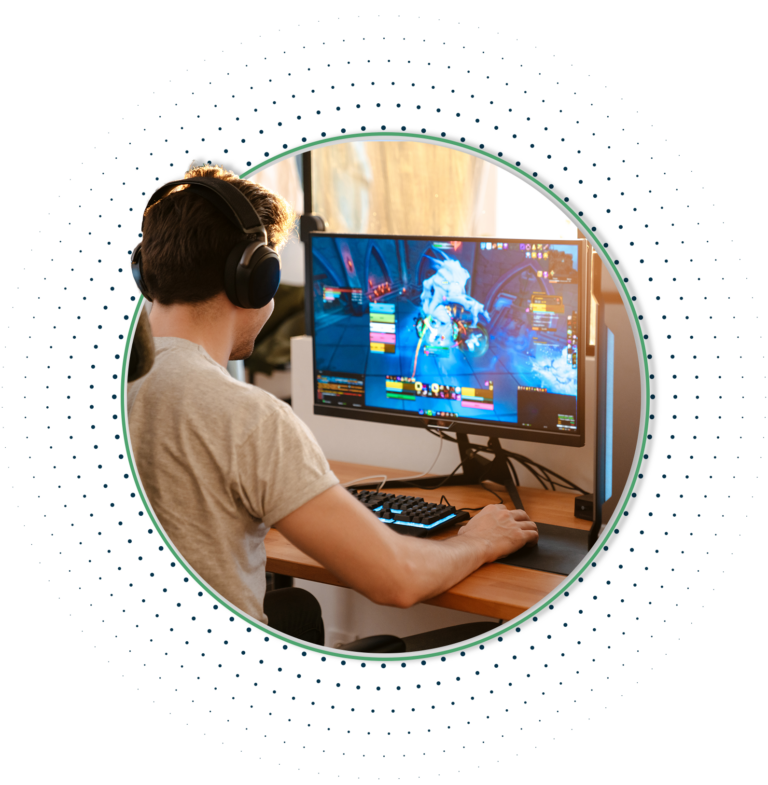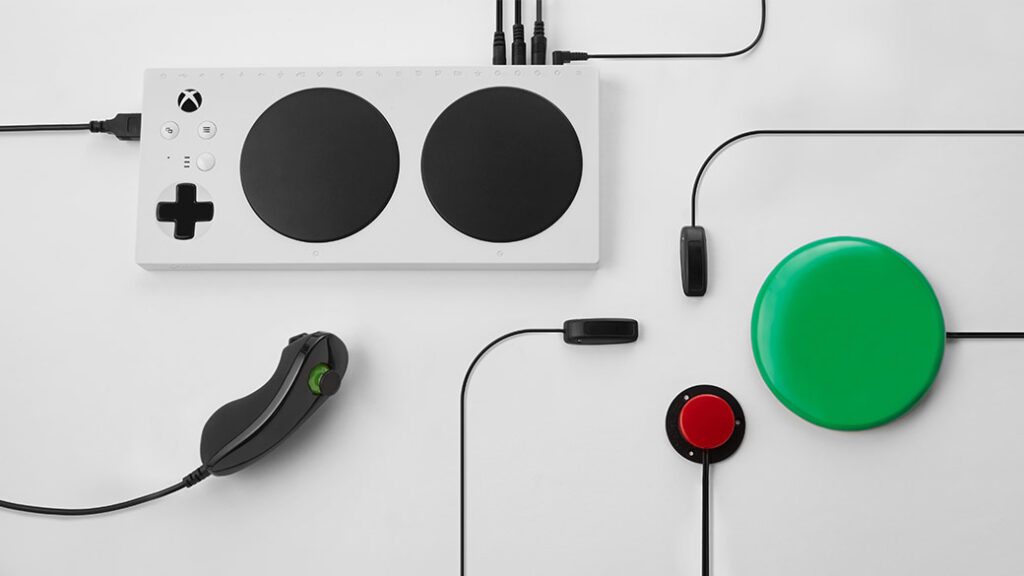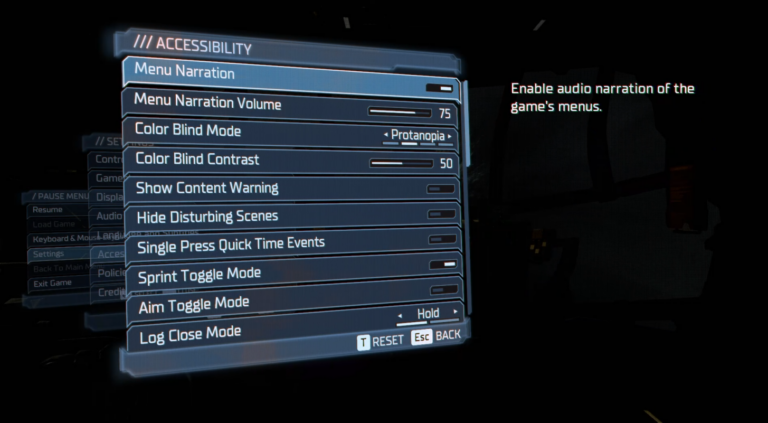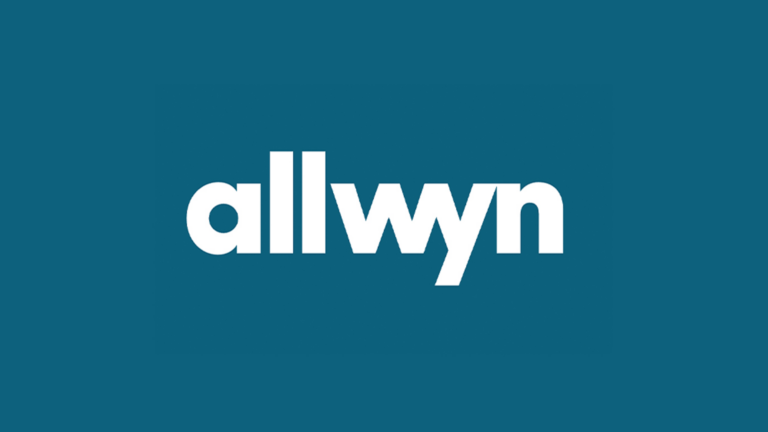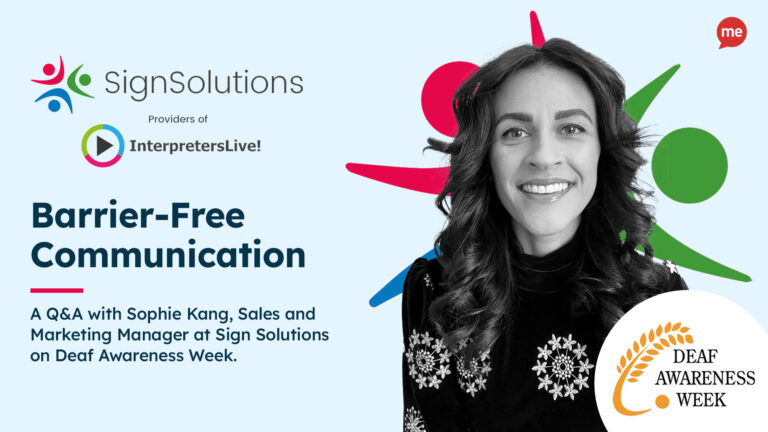Video games have come a long way since we controlled an Italian plumber as he hopped, kicked and jumped over barrels thrown by an enraged but cheerful monkey. What started as a hobby after a stressful time on the school playground has become a global phenomenon with billions of players worldwide. Newzoo, a leading provider of gaming analytics, put this statement into perspective. They revealed the global gaming industry market generated $175.8 billion of revenue in 2020 with a growth rate of 15.6% annually, that is some crazy numbers!
But, as the gaming landscape has expanded, so too has the demand for accessibility. Not just in the products themselves but for the communities and platforms that surround them. The needs of individuals with different abilities and backgrounds are becoming more and more crucial, both ethically and to ensure that this is enjoyable for all users. So, put down your controller and turn off your Playstation, as we set out on a mission to learn all about accessible gaming and how together, we can bring a fully inclusive experience for gamers in this ever-growing digital world.
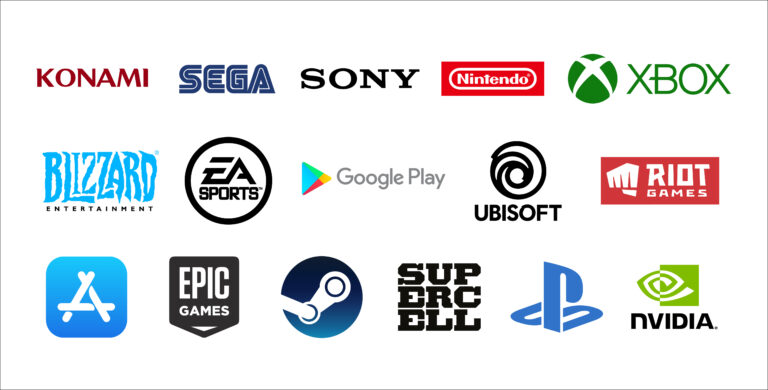
Why is Accessible Gaming Important?
A great opening query! The fact is, this once frowned-upon industry is now bringing many benefits which are excluded from the lives of many disabled gamers across the internet. Many studies have proven that playing video games can improve…
The Personal Benefits
Cognitive Skills
A good example of this ability could be problem-solving decision-making and even spatial awareness. Learn more about this with our cognitive accessibility guide here.
Mental Health
According to research, playing video games can improve mental health by lowering stress and anxiety, elevating mood, and fostering a sense of social connection through fun gameplay.
Physical Health
Games that call for movement, like dancing or athletics, can enhance coordination and physical fitness. A good example of this could be Wii Sports or the massively popular Mario Party 8.
Social Activity
A Multiplayer game can promote teamwork, improve social skills and build relationships between games whilst being able to combat social isolation.
The Bigger Picture for Disabled Gamers
Let’s open our minds to the broader perspective, being able to improve accessibility in games will bring positives to a range of areas in the industry itself! here is how…
Inclusion improves your potential audience
with 1.3 billion individuals suffering from disabilities worldwide, game developers who put accessibility features a priority will attract more customers whilst creating a positive brand image.
Speaking of developers
You will be seen as more socially responsible and inclusive. A good reputation can go far in the games industry!


Include all players
Allow people with disabilities to participate in the gaming community! Gaming can be a method for persons with disabilities to unwind and do something enjoyable while escaping from their daily struggles. This is made possible by accessible games that take away any barriers that would impede players from enjoying themselves.
If those points weren’t enough, Just listen to this…According to Scope, 66% of disabled gamers said they faced barriers whilst gaming AND 50% of disabled gamers say that information on the inclusive features of a game has affected their decision to buy it!
The History and Recent Success of Game Accessibility
Now we can see the importance of inclusion in gaming, why has this not been the case in the past? It’s safe to say that accessibility in video games has been improving more in recent years than in the early days of gaming. It’s important to not forget the roots of the change & to remind ourselves of what we are doing right now that should be appreciated.
In The Beginning…
Let’s kick it back to the 1980s when the first elements of accessibility in games were spotted. Text-based adventure games were starting to include features such as adjustable text size and colour options for users with visual impairments. Some great examples of these games would be Zork (1980), Planetfall (1983) and The Hitchhikers Guide to the Galaxy (1984).
A console first
The 1990s began to bolster accessibility features on consoles with the introduction of button remapping & customisation for disabled gamers. The first game to add this would be Mortal Kombat 2 (1993) with Street Fighter 2 Turbo (1993) and Doom (1993) following suit.
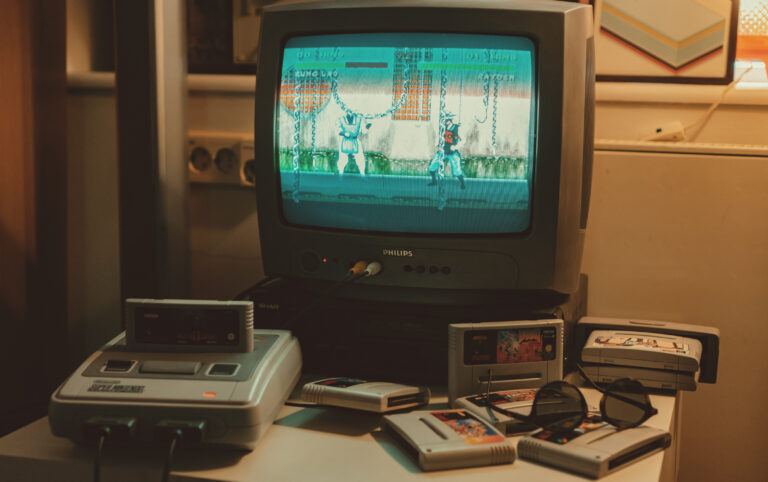
Now we’re talking
However, it was the Millennials who were going to benefit the most! As in the early 2000s, video game developers included adjustable difficulty levels of gameplay and closed captions for cut scenes. These would most notably be added in triple-A giants such as The Sims (2000), and Halo: Combat Evolved (2001), Another example of this would be Madden NFL 2004 (2003).
Recent Successful Accessibility Features
Gradually, game accessibility software has gone from something that should be addressed to something gaming software must prioritise. Some of the most recent projects that have been developed have our ears perked up, so let’s discuss a few below.
Adaptive Controllers
The Xbox Adaptive Controller is a specialised gamepad created for gamers with disabilities. It was released in 2018. It has big programmable buttons and can be adjusted to function with different assistive technology.
The International Game Developers Association
A collection of accessibility guidelines for game producers was published in 2020 by the IGDA. They include suggestions for enhancing accessibility in several game design fields, including visual, auditory, and motor accessibility.
The Accessibility Menus in Games
More and more games now come with an accessibility menu that lets players change numerous accessibility options to fit their preferences, including font size, colour contrast, and control layout. Dead Space (2023), a remake of the 2008 best-selling horror game about a space engineer named Issac who is stranded on a remote space station, added an accessibility menu for disabled gamers.
Audio cues in The Last of Us Part 2
Audio description elements have started to appear in some games, such as The Last of Us Part II (2020), and they provide narration for in-game visual events and other crucial information.
Our 40-page Digital Accessibility & Inclusion Toolkit helps businesses break down online barriers and make a real impact. It offers practical advice on all aspects of digital accessibility, from writing an accessibility statement to accessible website tips and inclusive hiring.
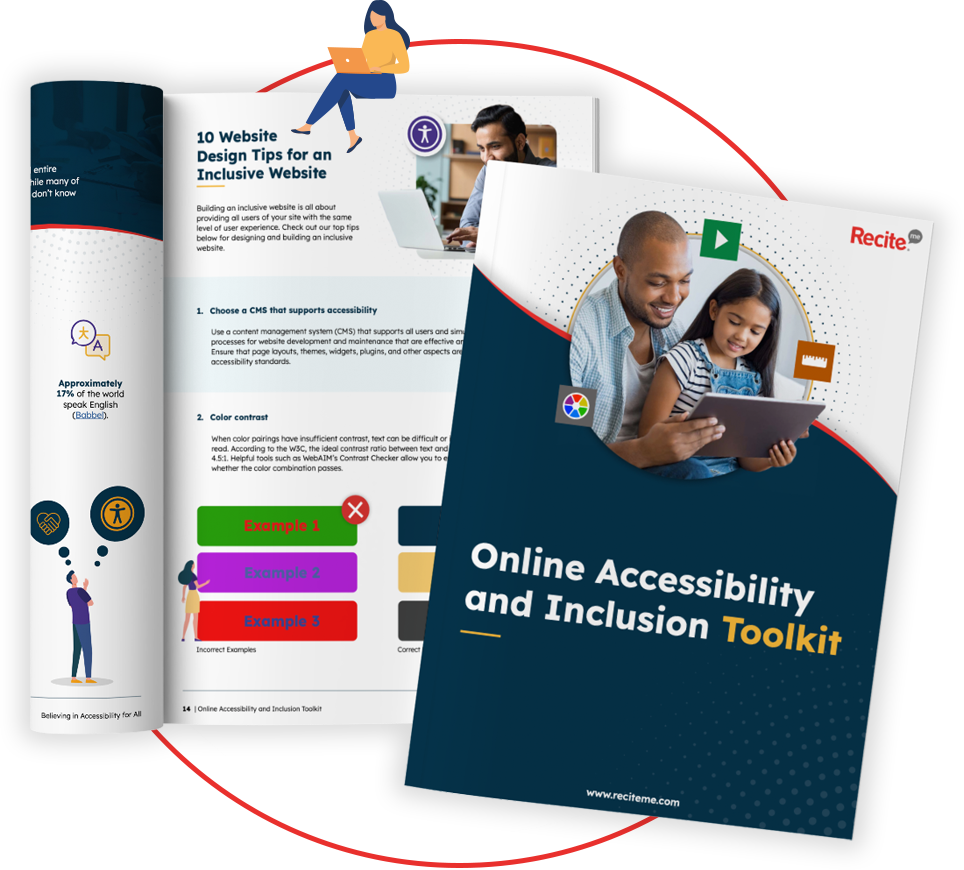
The Cult Hero’s
Recent successes don’t just lie in the software we use, but in the individuals who are leading the change. There are disabled gamers and charities in this space that could be (and are!) a major influence, with the power to change someone’s life through their ability to not let their disabilities be accessibility barriers.
Being inclusive is crucial for both gamers and those working in the games business. By offering accessible tools and accommodations, it is possible to foster a more inclusive workplace where people with disabilities can contribute to the sector and offer their particular perspectives on game creation.
Ian Hamilton
Video game accessibility specialist Ian Hamilton has emerged as a key advocate for improved accessibility in games. He has collaborated with well-known game developers including Ubisoft, EA, and Sony to improve the accessibility of their games for other players with impairments. Hamilton has also produced several guidelines for game designers and tools to assist them create more inclusive games.
Speaking up for what’s right!
Ian Hamilton has also spoken extensively about working in the gaming scene with disabilities. He has stressed the value of ensuring that workers with disabilities can function in an inclusive and accommodating environment since he is a strong proponent of increased Inclusivity in the sector.

Mike Begum
Mike Begum, a disabled gamer, was born with cerebral palsy, which has an impact on his speech and movement abilities. Despite this, he has established a solid Twitch following by displaying his prowess in titles like Fortnite and Apex Legends. Begum’s streams are not only a delight to watch, but they also give other disabled gamers inspiration.
The Ablegamers Charity
A nonprofit organisation called AbleGamers works to improve accessibility for gamers with disabilities. The group was established in 2004 and has since given hundreds of disabled people specialised gaming setups and assistive equipment.
It’s been fantastic to highlight the positives of progression for inclusion through the creation of games themselves and role models for the next generation. Nevertheless, at Recite Me, we believe we can have input on an area that many companies need to address.
Consider the Entire Gamer Journey

Accessibility in gaming must go beyond the games themselves. understanding all the aspects of the gamer’s journey is essential to make it inclusive and we understand it is easy to forget that accessibility doesn’t just start when players load up the games console on their TV screens, it can be from the first interaction they have searching for a review online.
These questions below might be able to help understand better
Where do gamers go to find out about new game releases?
A: Online – If you are a games magazine/publisher, gamers rely on your trusted input to keep them up to date with new game releases.
Where do gamers go to read reviews of a game they are interested in?
A: Online – if you are a trusted, game-related website, gamers rely on your platform to provide well-educated reviews to guide them on what and not to play.
Where do gamers go to purchase the games they want?
A: Online – The days of visiting Blockbuster & purchasing a game on a shelf are long gone. Why go through the inconvenience of driving into your city and picking up the latest release, hoping it’s in stock when you can order it off Amazon and have a guaranteed 24-hour delivery?
Where do gamers go to join communities?
A: Online – Whether you are Steam or Epic Games, the majority of communities for this sector exist online and in a virtual reality environment!
With a lot of needs from gamers relying on an internet connection, we must consider those who encounter online barriers from the get-go. As of 2023, WHO reported that 16% of the population lives with significant disabilities which can make it difficult to complete everyday tasks. In reality, disabled gamers should be able to purchase, browse & consume content just like everyone else. Right? How do we remove those online barriers and ensure all players are winning?
Accessible Experiences On-Demand
Websites are accessible to a wide range of individuals thanks to Recite Me’s cutting-edge array of accessibility on-demand tools:
The Recite Me Checker analyses the issues you should be focusing on fixing by executing 396 distinct compliance scans by WCAG 2.1 to audit back-end and front-end web development processes.
With the Recite Me Toolbar, visitors with various linguistic demands, physical disabilities, vision loss, cognitive impairments, learning challenges, and other disabilities can access your website according to their unique requirements and preferences.
Backed by Real Life Data:
The technology used by Recite Me is already paying off for thousands of enterprises. Our 2022 annual report’s findings reveal that over the preceding 12 months:
The Recite Me toolbar was active on over 5000 websites
Individual toolbar usage increased by 59% to over 5.5 million customers.
We made 34.4 million pages of web content inclusive.
On average, Recite Me toolbar users viewed 6.33 web pages per session – more than double the internet average of 2.8 pages per session.
Start a New Game + Today!
Are you ready to start your inclusive journey? If so, Recite Me can provide your organisation with assistance on your new mission to become accessible, in the form of these simple steps:
Contact our team for more advice about WCAG standards and the web accessibility legislation that applies to your organisation.
Find out more about the Recite Me Web Accessibility Checker.
Schedule a free scanner demonstration to learn how our technology can help you.
Run a free check of your website for WCAG 2.1 AA compliance.
Find out more about the Recite Me Toolbar.

Accessible Gaming FAQs:
What does Accessibility mean in Video Games?
In video games, accessibility refers to the design and implementation of features that allow players of varying abilities to fully participate, enjoy, and navigate the game, assuring inclusion and equal opportunity.
What’s the Most Recent Success in Accessibility for Games?
The most notable success is ” Project Leonardo”, a new adaptive device on Playstation 5 that has programmable buttons, joysticks, and touch-sensitive panels. the controller also has adaptable triggers and haptic feedback to improve immersion.
Who are SpecialEffect?
SpecialEffect provides people with access to video games using customised gaming setups and they offer accessible controllers and assistive technology.
Why Should I make my Gaming Website Accessible?
Being accessible on your website will reduce the stress and struggle for individuals reading and searching about games they want to purchase.
What is an Accessibility Toolbar?
It is a toolbar added to a web page or domain to aid users in manually accessing elements of your website.
